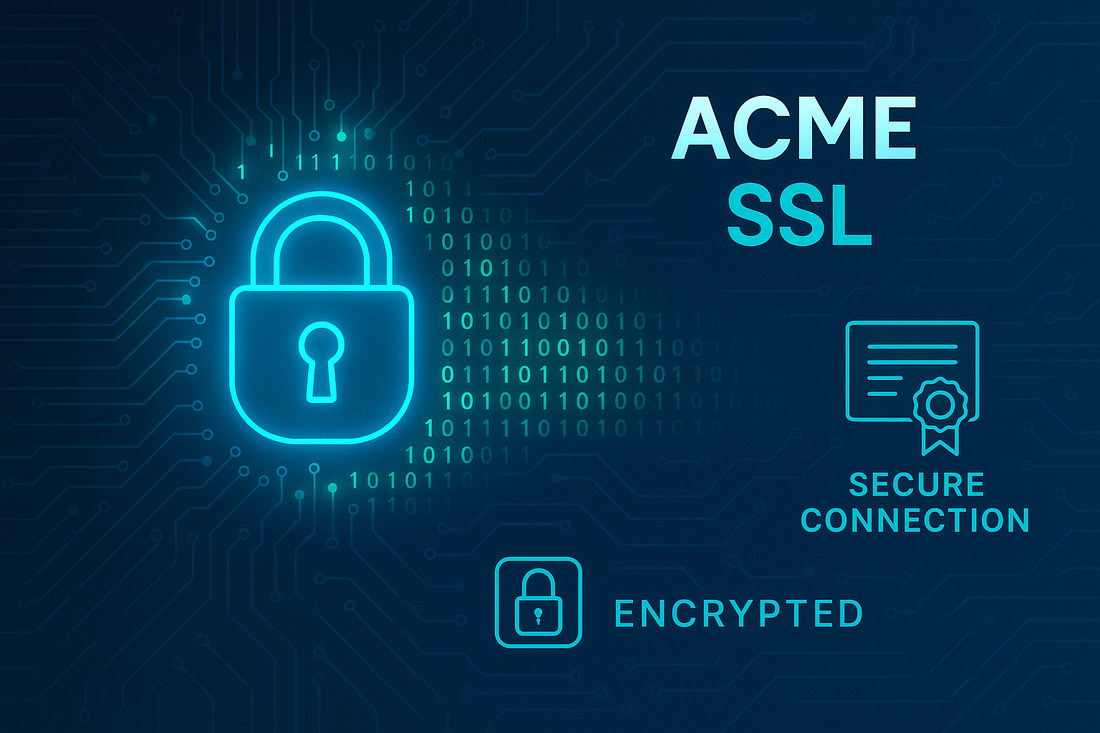
What Is the ACME Protocol?
Emma ThompsonShare
The Automated SSL Certificate Management Environment (ACME) protocol represents a revolutionary advancement in SSL Certificate management and deployment.
This standardized protocol enables the automated issuance and renewal of SSL Certificates without requiring manual intervention from system administrators or security teams.
ACME was developed by the Internet Security Research Group (ISRG) as part of the Let Encrypt initiative.
The protocol has since become an industry standard, formally documented in RFC 8555, which establishes the framework for automated SSL Certificate management interactions between Certificate Authority (CA) servers and client systems.
How ACME Protocol Works
The ACME protocol operates through a series of authenticated requests between a client (usually a web server or application) and a Certificate Authority server.
When initiating the SSL Certificate issuance process, the ACME client first generates a Certificate Signing Request (CSR) containing the domain information and public key.
Domain validation represents a crucial step in the ACME protocol workflow. The CA server issues specific challenges that the client must complete to prove domain ownership.
These challenges typically involve either placing a specific DNS record or hosting a particular file at a predetermined location on the web server.
Once domain control is verified, the ACME protocol facilitates the automatic issuance of the SSL Certificate.
This automation eliminates traditional manual steps like generating CSRs, downloading SSL Certificates, and installing them on web servers.
Benefits of ACME Implementation
Organizations implementing ACME protocol experience significant advantages in their SSL Certificate management processes.
The automated nature of ACME dramatically reduces the risk of SSL Certificate expiration, which can lead to service interruptions and security warnings for end users.
System administrators benefit from reduced operational overhead as the ACME protocol handles SSL Certificate renewal automatically.
This automation proves particularly valuable in large-scale deployments where managing numerous SSL Certificates manually would be time-consuming and error-prone.
Security improvements represent another key advantage of ACME implementation. The protocol enforces strong encryption standards and follows industry best practices for SSL Certificate issuance, helping organizations maintain robust security postures.
ACME Protocol Integration
Modern web servers and hosting platforms increasingly support ACME protocol integration out of the box.
Popular web servers like Apache and NGINX offer ACME client capabilities through various modules and plugins, simplifying the implementation process for organizations.
The protocol supports multiple validation methods, including HTTP-01, DNS-01, and TLS-ALPN-01 challenges. This flexibility allows organizations to choose the validation method that best suits their infrastructure and security requirements while maintaining automated SSL Certificate management capabilities.
Certificate Authorities, including Trustico® have embraced ACME protocol support to provide customers with streamlined SSL Certificate management options.
This industry-wide adoption has established ACME as the de facto standard for automated SSL Certificate lifecycle management.
Security Considerations
While ACME offers robust automation capabilities, organizations must implement proper security controls around their ACME client configurations. This includes protecting ACME account credentials, managing API access tokens securely, and monitoring SSL Certificate issuance activities.
Regular auditing of ACME-related processes helps ensure compliance with security policies and industry regulations.
Organizations should maintain detailed logs of SSL Certificate issuance, renewal, and revocation events facilitated through the ACME protocol.
The ACME protocol continues to evolve with additional security features and capabilities being added to the standard.
Organizations implementing ACME should stay informed about protocol updates and best practices to maintain optimal security and efficiency in their SSL Certificate management processes.



